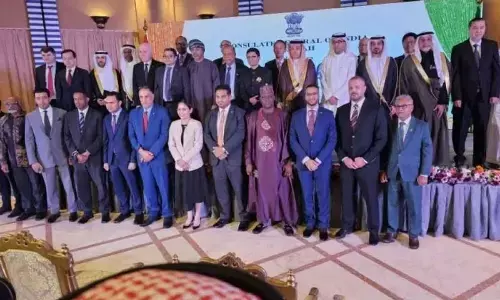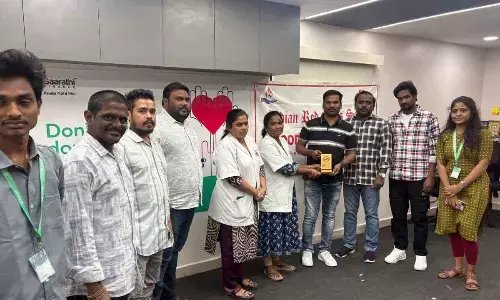Privilege is fine, but RTI is superior

Privilege is fine, but RTI is superior, Privilege and secrecy are generally weapons the State use against the people’s access to information.
 Privilege and secrecy are generally weapons the State use against the people’s access to information. The Judiciary was at forefront in questioning the indiscriminate use of this weapon to keep key decisions under wraps. The apex court of India gave historic judgments laying the foundation for the right to information. Supreme Court stated that the government’s privilege to withhold the document is subject to the right to information of a citizen. Article 74(2) of the Constitution was very purposefully interpreted by the Supreme Court. People’s right to question the imposition of President’s Rule was incorporated by the apex court, keeping aside so-called privilege-based secrecy.
Privilege and secrecy are generally weapons the State use against the people’s access to information. The Judiciary was at forefront in questioning the indiscriminate use of this weapon to keep key decisions under wraps. The apex court of India gave historic judgments laying the foundation for the right to information. Supreme Court stated that the government’s privilege to withhold the document is subject to the right to information of a citizen. Article 74(2) of the Constitution was very purposefully interpreted by the Supreme Court. People’s right to question the imposition of President’s Rule was incorporated by the apex court, keeping aside so-called privilege-based secrecy.
RTI activist and constant letter writer Subhash Chandra Agrawal sought to know action taken about a news report ‘Supreme Court tells government to decide on Balakrishnan Case’, ‘What about probe against NHRC Chief KG Balakrishnan’ dated 22.1.2013, also asked for copies of correspondence, file-noting/ documents etc on action taken on his submission about the probe against Justice KG Balakrishnan.
The Chief Public Information Officer (CPIO) stated that the Supreme Court disposed off a writ petition No. (C) No. 35 of 2012 in the matter of Common Cause vs UOI requesting the competent authority to take decision on Committee of Judicial Accountability (CJA) communication.
The appellant sought copies of CJA representations against Justice KG Balakrishnan, Justice Y K Sabharwal and action taken etc and copies of all communications between CJA and Union government on this issue. The CPIO replied that department has no authority to investigate retired Judges under the Judges (Inquiry) Act, 1968. He was informed that his questions about outcome of representation by CJA, request for copies of communication with file notings etc was transferred to the Home Department.
The request for information under the Right to Information (RTI) Act has no power of compelling the government to take action. But it compels them to answer whether any action is taken or not. As the State hesitates to inform lack of action on their part, the RTI Act becomes an embarrassing weapon. There was no proper response to Agrawal’s RTI.
Agrawal contended before the CIC that the government could not claim any privilege because as on the date of request for probe Justice KG Balakrishnan was not the Chief Justice of India as he was retired. This will not also attract third party provisions as the representation is given by an NGO. Moreover request for information has nothing to do with the correspondence regarding appointment of Justice KG Balakrishnan as CJI or as Chairman NHRC. Neither the application nor any other paper deals with any allegation against any person holding high Constitutional offices, hence it will not attract any cover of privilege.
Assuming for a moment it is privileged communication, there is no absolute bar on its disclosure because disclosure serves public interest and non-disclosure would affect public interest. The applicant wanted to know whether it was true that the Supreme Court directed the Union government to take final decision on the representation by committee of Judicial Accountability (CJA) seeking Presidential reference on allegations against NHRC Chairperson Justice KG Balakrishnan as also referred in some news reports.
Privilege no defence
Section 8(1)(c) of the RTI Act says there shall be no obligation to give any citizen information, the disclosure of which would cause a breach of privilege of Parliament or the State Legislature. No other privilege is dealt with in the Right to Information Act, 2005. It does not accord any privilege to any other authority to deny communication except the situations prescribed under the Act. Article 74(2) of the Constitution of India prohibits the courts from inquiring into the question ‘whether any and if so what advice was tendered by Ministers to President’.
In case of SP Gupta vs Union of India, AIR 1982 SC 149, the apex Court held that while the exact advice given by the Council of Ministers to the President could not be examined by the court, the material on which such advice was based was not excluded from the judicial purview.
Six judges of a 7-member Bench held that no privilege could be claimed with respect to the documents which constituted the material for forming opinion in the case of appointment and transfer of judges. Further immunity against disclosure claimed under the Section 123 of the Indian Evidence Act was not a privilege which could be waived by the State. It is an immunity which was granted in order to protect public interest. Therefore even if the State did not claim such immunity, it was the duty of the court to make sure that no document, the disclosure of which would harm public interest, was disclosed. The Court had to balance public interest in fair administration of justice against the public interest in the confidentiality of certain documents. Judicial discretion would be exercised so as to promote maximum openness and limit secrecy to the minimum.
The Supreme Court finally held that “…where a document was withheld, a court could examine it, and only when it was convinced that its disclosure would prejudice public interest, could it allow such action. The Government’s privilege to withhold disclosure of documents was considered as subject to the right to information of the individual”.
Assuming for a moment that the information about ‘action taken’ on request for probe against former CJI is privileged, such ‘privilege’ is not expressly provided as ground for rejection of request for information under Section 8(1). Under Section 8(1) information, disclosure of which would cause of breach of privilege of Parliament or State Legislature cannot be given. The information sought has nothing to do with the privilege of Parliament or State Legislature. The Correspondence between Executive about a former CJI is not privileged correspondence as per any provision of the RTI Act or Constitution of India. It is not information given in fiduciary relationship. Assuming again for a moment that disclosure of such information about probe about former CJI would cause harm to ‘protected interest’, Section 8(2) comes to the aid of disclosure. Section 8(2) says “…a public authority may allow access to information if public interest in disclosure outweighs the harm to the protected interests”. Thus the Commission finds that non-disclosure of what the appellant sought would not serve any public interest, would not harm any protected interest and in fact, public interest in its disclosure would outweigh the probable harm, if any, to protected (if at all protected) interests.
The Supreme Court in Bommai case held that Article 74(2) is not a bar against the scrutiny of the material on the basis of which the President has arrived at his satisfaction for issuing the Proclamation under Article 356(1). As CIC, this author directed the Department of Legal Affairs to provide complete information to the appellant on the action taken on representation for probe against NHRC Chairperson Justice KG Balakrishnan.

















